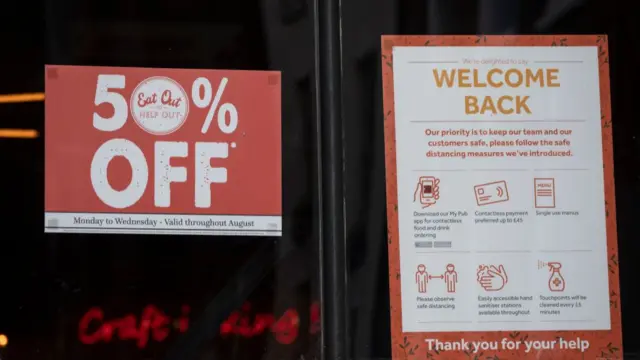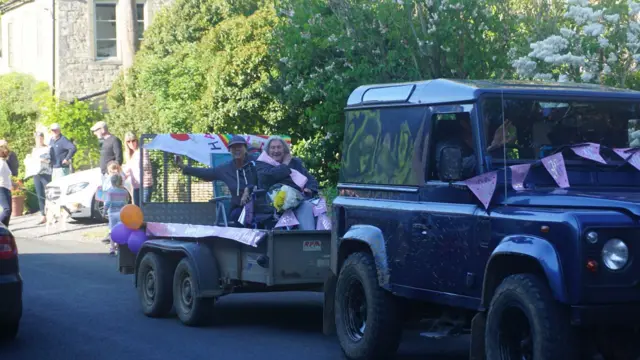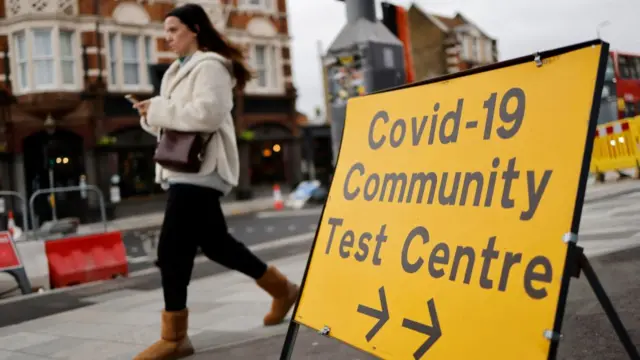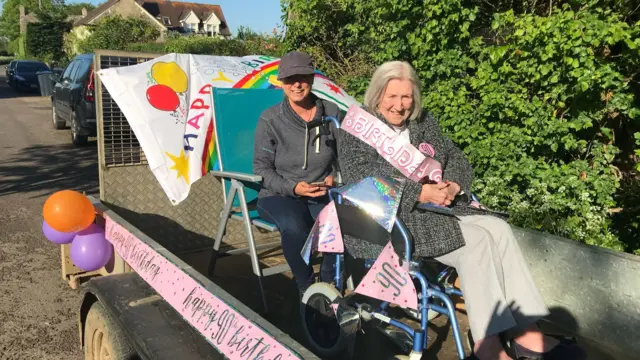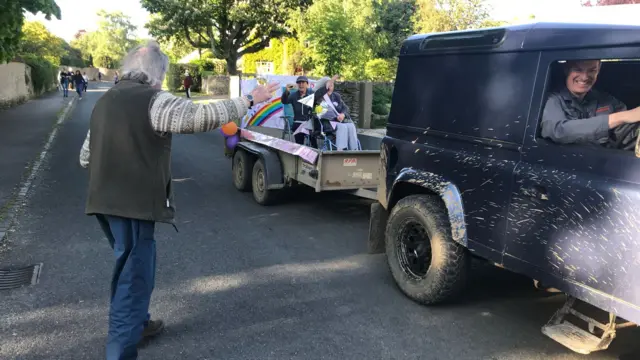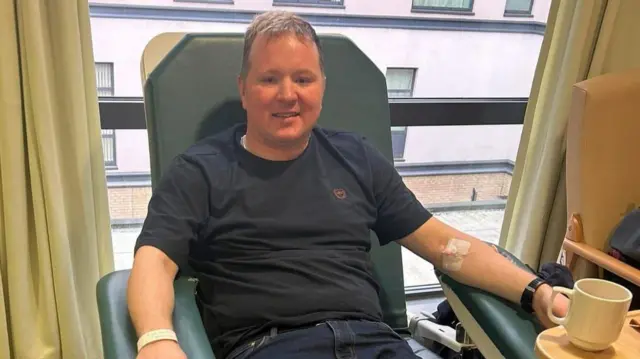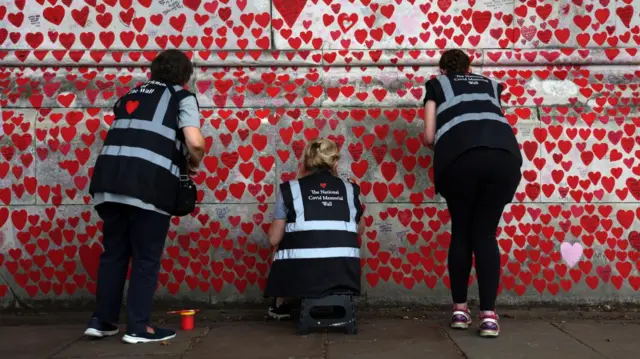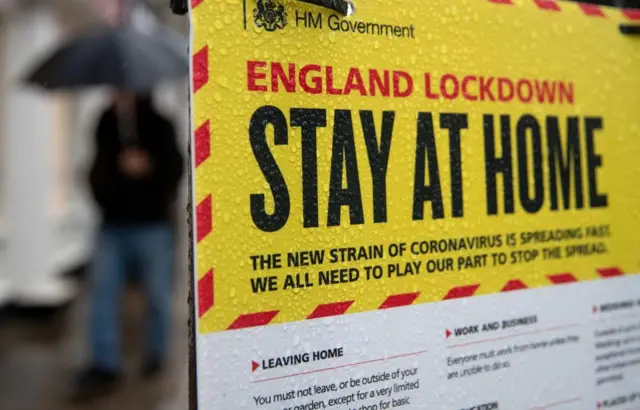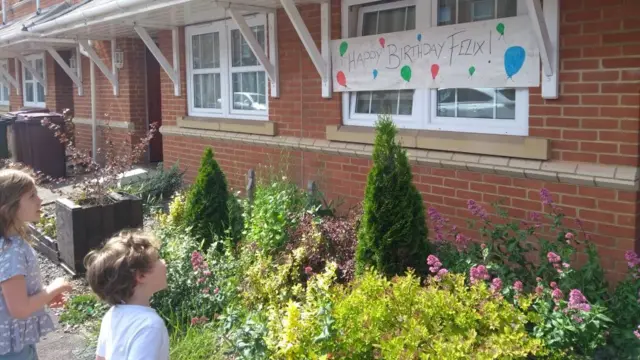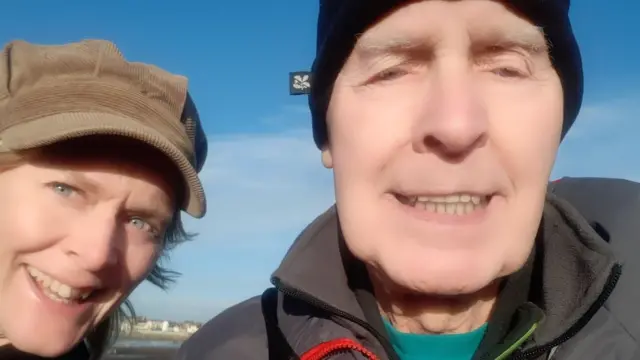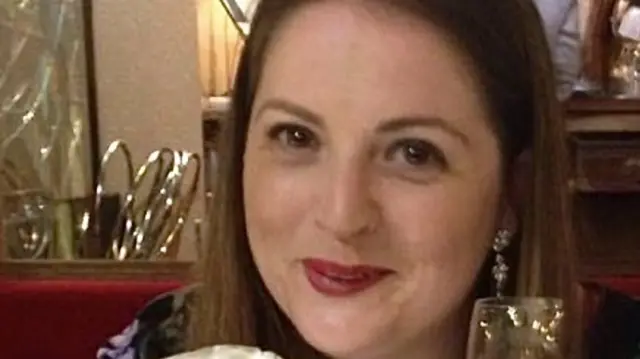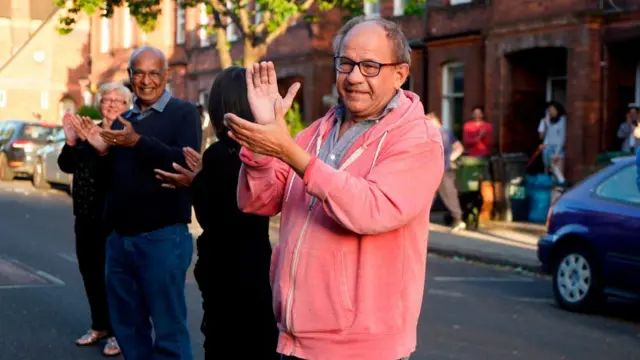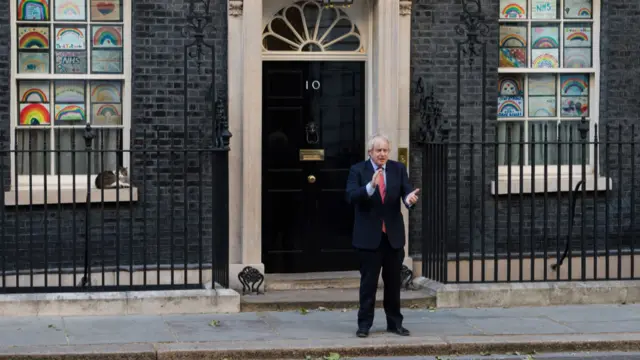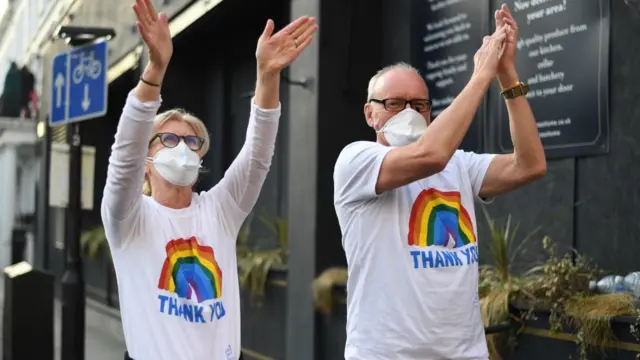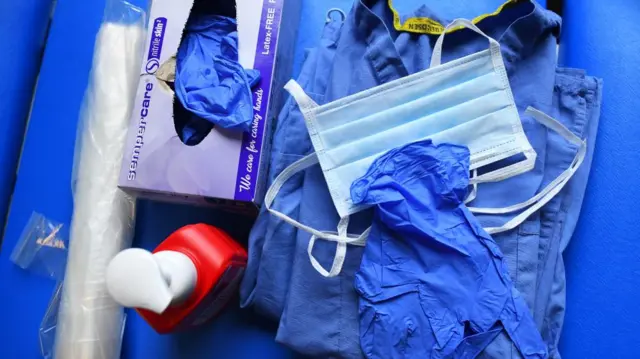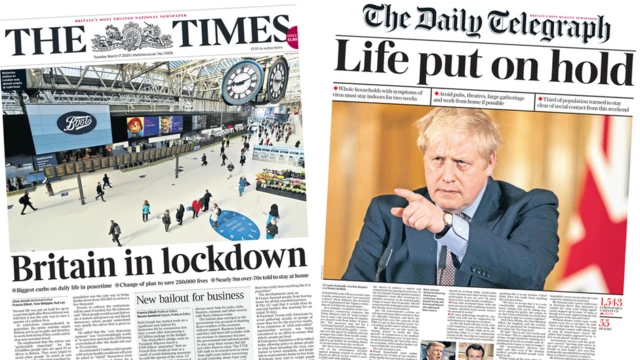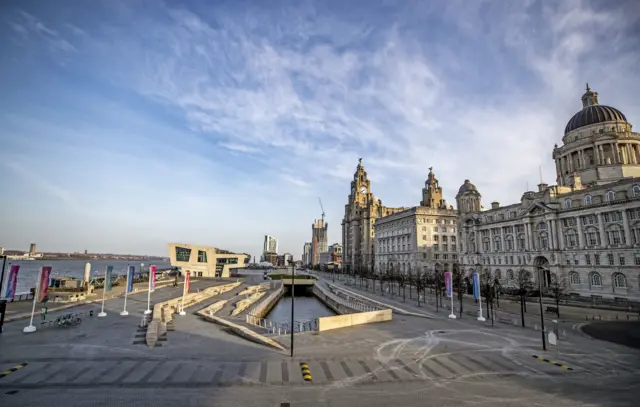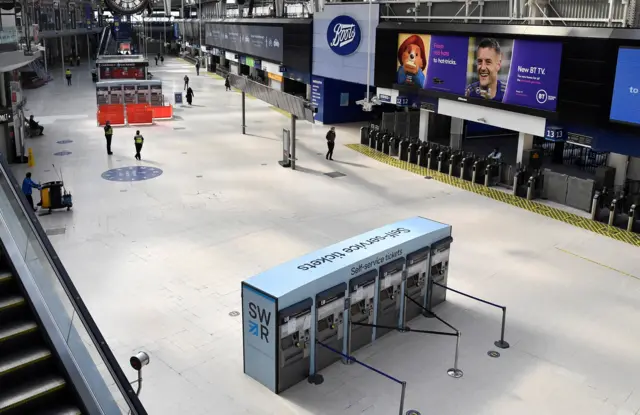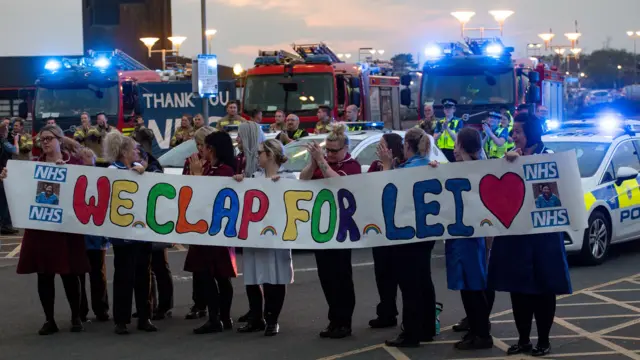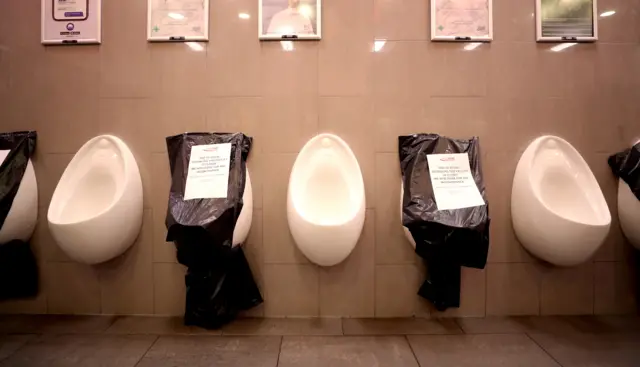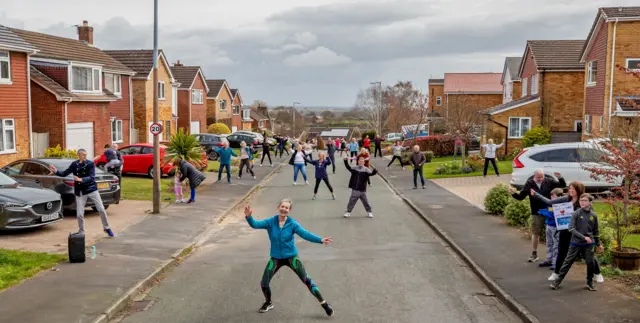Pranks, virtual cruises and babysitting fox cubs: some of lockdown's lighter momentspublished at 13:57 GMT 21 March
 Your Voice, Your BBC News
Your Voice, Your BBC News
As we've been reporting today, many faced some of the most difficult moments of their lives during the pandemic - from the deaths of loved ones, to isolation from friends, to managing lockdown in small spaces.
We have heard from some, however, who managed to find moments of relief.
Among those is Sammy from London who ended up "clapping for the NHS" on the wrong day thanks to a boyfriend's prank.
"I went straight out banging on a pan for a couple of minutes. I was the only one out there doing it.
"I wonder what the neighbours thought?!"
Meanwhile, we bet that babysitting fox cubs was not on Horsham-based Ian Gearing's agenda prior to the lockdown.
Nonetheless, the quietness of the village gave a local fox the confidence to drop her five cubs in his garden each day.
 Image source, Ian Gearing
Image source, Ian GearingFor Graham from Cheltenham, it was a "virtual cruise group" that kept morale afloat.
"None of those on the group knew each other but we cruised around the world and had a fab time," he explains.
"As we visited each destination on our cruise, those who had been to a particular destination posted pictures of their visit and gave tips on what to do and not to do."
